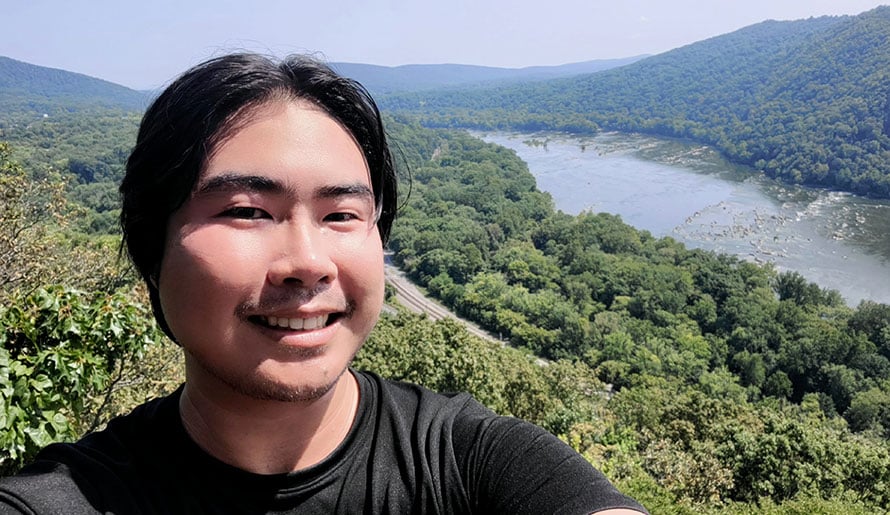Dr. Charles Lacson is Committed to Military Specific Cancer Exposure and Risk
Dr. Charles J. Lacson's career has been shaped by his transition from working at Moffitt Cancer Center to leading impactful research in military health and cancer epidemiology. Joining Moffitt in January 2020, Dr. Lacson worked as an Applied Research Scientist in Dr. Peter Kanetsky's lab (Cancer Epidemiology Program), focusing on melanoma epidemiology and precision prevention. His primary research projects included GenoMEL, an international consortium studying melanoma-prone families, and two groundbreaking precision prevention trials aimed at encouraging preventive behaviors against melanoma and skin cancer through genetic testing and prevention guidelines.

Currently, Dr. Lacson holds the position of molecular epidemiologist with the Murtha Cancer Center Research Program at the Henry M. Jackson Foundation for the Advancement of Military Medicine in Bethesda, MD. He is also an Assistant Professor in the Department of Surgery at the Uniformed Services University of the Health Sciences. His current research focus includes investigating military-specific exposures and their connection to cancer risk among U.S. Armed Forces Service Members. He is also at the forefront of precision medicine and clinical epidemiology for testicular cancer and melanoma patients. A key initiative in his current role is his involvement with the National Cancer Institute's Cancer Screening Research Network, where he is working on a large nationwide trial for multi-cancer detection assays and exploring disparities within the military population regarding these tests.
Reflecting on his time at Moffitt, Dr. Lacson credits his one-on-one mentorship with Dr. Peter Kanetsky for being vital to his growth as a researcher. "Getting direct feedback and brainstorming together when faced with an obstacle gave me invaluable insight into what makes research impactful," he explains. Dr. Lacson also benefited from collaboration with other Moffitt scientists, such as Dr. Susan Vadaparampil and Dr. Steve Sutton. He highlights attending the AACR’s Integrated Molecular Epidemiology Workshop in 2022, which refined his skills in genetic and molecular epidemiology and reignited his passion for the field.
One of the aspects Dr. Lacson enjoys most about his current role is the opportunity to initiate his own research projects and collaborate with experts in different fields. He is particularly motivated by the potential to create a lasting impact not only for military populations but also for civilians. His new focus on environmental exposures has presented exciting challenges. Trained in genetic epidemiology, Dr. Lacson is now diving into exposure science, which requires understanding carcinogenic effects of exogenous exposures, their measurement, and the biological mechanisms behind them.
Another project Dr. Lacson is currently working on is an exciting artificial intelligence project on melanoma, for which he has secured internal funding. This collaboration, involving the Joint Pathology Center and Harvard University, is set to explore innovative applications of AI in cancer research.
For current trainees, Dr. Lacson offers the following advice, “While producing high-quality research deliverables is important, it’s also essential to stay aware of trends in academia and industry. Keep track of funded research, competitive training opportunities, and always update your CV. Make sure to have an elevator pitch ready for unexpected opportunities, and most importantly, don’t forget to make time for your well-being.”
Dr. Lacson’s journey from Moffitt to military cancer research reflects a trajectory of growth, collaboration, and a commitment to improving cancer prevention and treatment for both military and civilian populations alike.
